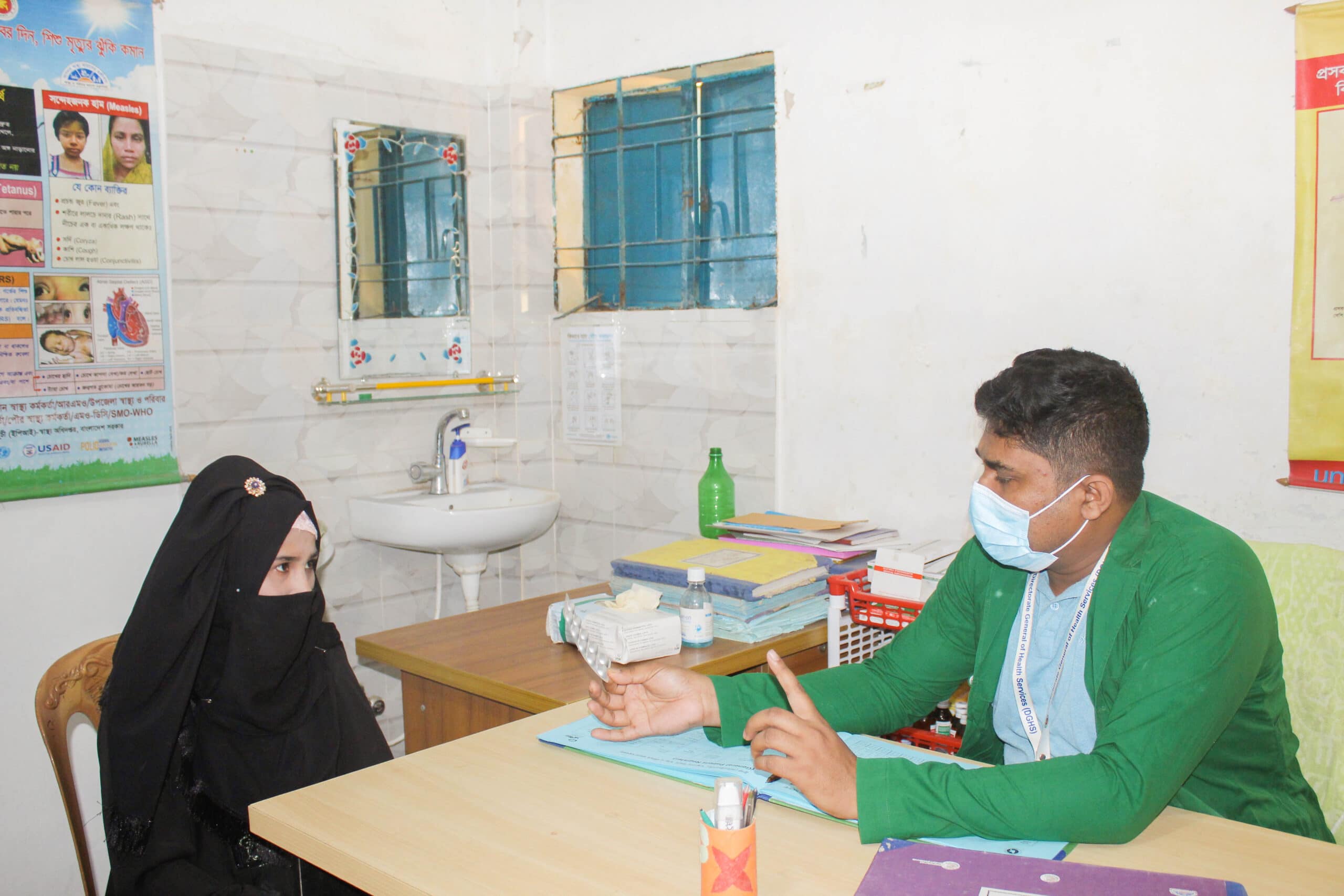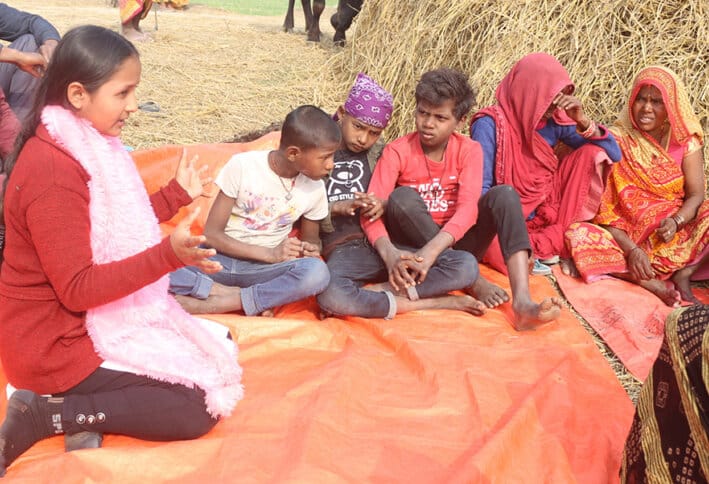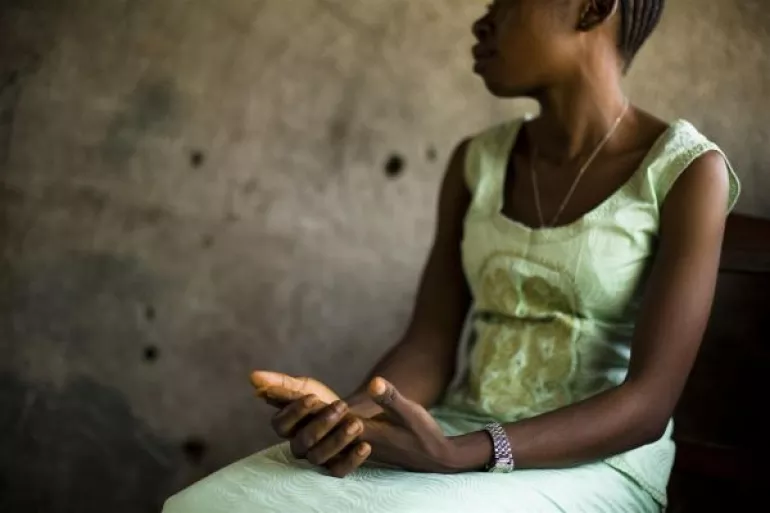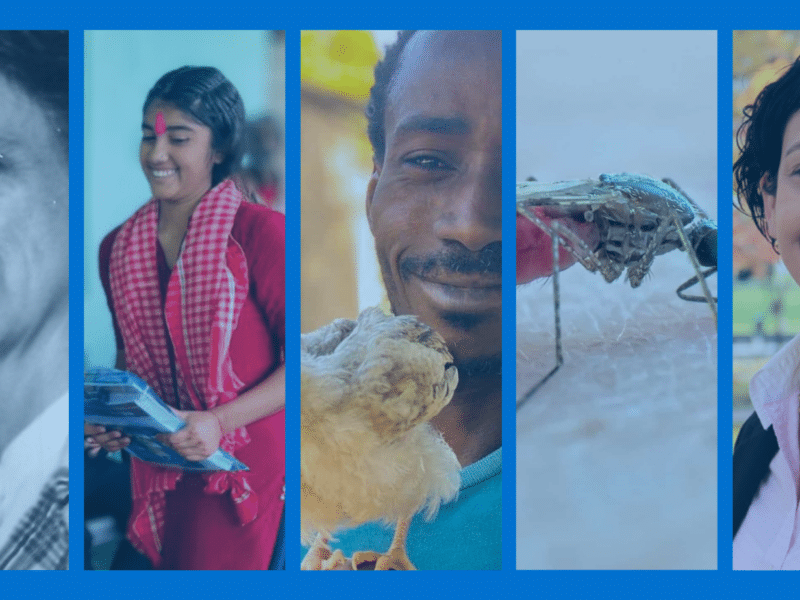Seventeen-year-old Jannatul Ferdous discovered that her parents were planning to withdraw her from school to get her married.
With support from the Johns Hopkins Center for Communication Programs-led Ujjiban project, instead Jannat helped her parents understand that her health and future would be at risk if she got married so young and persuaded them to let her continue her education.
Bangladesh has the highest prevalence of child marriage in South Asia, and ranks among the 10 countries in the world with the highest levels of child marriage. The practice of child marriage is deeply rooted in tradition, cultural beliefs, gender inequality and poverty. Reforming entrenched beliefs about child marriage is not easy — but this already difficult situation took a turn for the worse because of COVID-19.
“In the last two years, several friends of mine got married and some of them already have children. None of them finished their schooling,” said Jannat, a student at Palong Khali High School in the Ukhiya area of Bangladesh.
School closures, isolation from friends and support networks, service disruptions, economic stress and parental deaths due to the pandemic have put millions of vulnerable girls at increased risk of child marriage. Child brides are more likely to experience domestic violence; be deprived of their rights to health, education, safety and participation; and be at risk of maternal morbidity and mortality because of early and unplanned pregnancy.
“My mind went blank when my parents informed me that they had received a good marriage proposal and I should prepare to get married soon,” Jannat says. “The thought of a life similar to what some of my married friends are leading terrified me. They do not seem happy. They even need permission from their husband to talk to their family or friends.”
A multi-sector needs assessment conducted by the Inter Sector Coordination Group found that among the men who were interviewed, 68 percent believed that a wife does not have a right to express her opinion when she disagrees with her husband, and 37 percent considered it to be a wife’s duty to tolerate physical violence by her husband for the sake of the family.
Only 30 percent said that married women should be allowed to work outside of the home.
Around the time when Jannat’s family was proceeding with her marriage discussions, the Ujjiban started working in Ukhiya to increase awareness among women and girls about family planning, reproductive health, maternal and child health and nutrition.
As a part of this activity, Ujjiban organized outreach shows at the Nolbonia Community Clinic, which is within walking distance from Jannat’s home. She learned about the negative health and social consequences of child marriage, watched videos on adolescent health and well-being and the negative aspects of adolescent pregnancy.
Jannat showed those videos to her parents immediately. After a lengthy discussion between them, her parents agreed that if marriage at an early age is detrimental to Jannat’s health, they would rather wait for her to get married.
“Without those videos, I do not think I would have been able express my thoughts clearly enough to my parents for them to understand,” Jannat says. “I would certainly have not been able to talk about the health consequences of early childbirth because I knew so little about it. It was fortunate that I attended the outreach show and learned about all this.”
Ujjiban develops the knowledge and skills of community health workers in Bangladesh to help them provide quality and timely health care services and referrals as well as providing job aids to facilitate client counseling. Ujjiban works with the government’s network of more than 6,000 health and family planning workers, who provide services to people at community clinics and service centers and raise awareness through outreach meetings and door-to-door visits.
Since receiving the training and onsite orientations from Ujjiban, the community health worker at Nolbonia Community Clinic has been organizing group and individual counseling sessions. Jannat has become a regular visitor at the community clinic as she hopes to learn new information from the counseling sessions for the betterment of her and her family’s wellbeing.





